Social Representations of Teachers and Students About Plagiarism
A Comparative Study
DOI:
https://doi.org/10.22383/ri.v15i1.33Keywords:
intelectual property, comparative education, teacher participation, student participationAbstract
Objective: inquire about the perceptions of teachers and students on the topic of plagiarism, with the assumption that clarity regarding this phenomenon is an unavoidable step forward towards a solution. Methodology: two types of instruments were used: a closed questionnaire and a semi-structured questionnaire with open questions. Findings: the comparison of both populations’ perspectives is shown based on the open questionnaire. Conclussions: the results show that there are important differences in the perceptions of teachers and students in topics such as the severity of plagiarism and factors associated to it.
References
Agnes, F. (2008). Los usos de Internet en la educación superior: "De la documentación... al plagio".
Bowden, D. (1992). Plagiarism: The Tyranny of Voice. New York: Modern Language Association.
Bourdieu, P. (2002). Campo de poder y campo intelectual. Buenos Aires: Editorial Montressor.
Comas, R. y Sureda, J. (2007). Ciber-Plagio Académico. Una aproximación al estado de los conocimientos. Revista Textos de la CiberSociedad, 10.
Coulon, A. (1988). La etnometodología. Madrid: Cátedra.
Cueva, A., & Ochoa, L. (2014a). El plagio y su relación con los procesos de escritura académica. Forma y Función, 27(2).
https://doi.org/10.15446/fyf.v27n2.47667
Cueva, A., & Ochoa, L. (2014b). Percepciones de estudiantes acerca del plagio: datos cualitativos. (Documento inédito). Bogotá: Universidad Nacional de Colombia.
Cueva, A., & Ochoa, L. (2014c). Representaciones sociales de docentes en torno al tema del plagio. (Documento inédito). Bogotá: Universidad Nacional de Colombia.
Cueva, A., & Ochoa, L. (2015). Concepciones de profesores y estudiantes en torno al plagio: datos estadísticos. Bogotá: Universidad Nacional de Colombia.
Devlin, M., & Gray, K. (2007). In Their Own Words: A Qualitative Study of the Reasons Australian University Students Plagiarize. Higher Education Research and Development, 26(2).
https://doi.org/10.1080/07294360701310805
Hayes, N., & Introna, L. W. (2005). Cultural Values, Plagiarism, and Fairness: When Plagiarism Gets in the Way of Learning. Ethics and Behavior, 15(3), 213-231.
https://doi.org/10.1207/s15327019eb1503_2
Hymes, D. (1972). Language in Culture and Society. Nueva York: Harper and Row.
Hymes, D. (1974). Fundations and Sociolinguistics: An Ethnographic Approach. Filadelfia: University of Pennsylvania Press.
Jordan, A. E. (2001). College Student Cheating: The Role Of Motivation, Perceived Norms, Attitudes, and Knowledge of Institutional Policy. Ethics and Behavior, 11(3), 233-247.
https://doi.org/10.1207/S15327019EB1103_3
López, F. (2002). El análisis de contenido como método de investigación. Revista de Educación, (4), 167-179.
McCabe, D., & Trevino, L. (1993). Academic Dishonesty: Honor Codes and Other Contextual Influences. Journal of Higher Education, 64(5), 522-538.
https://doi.org/10.1080/00221546.1993.11778446
Mavrinac, M., Brumini, G., Bilic-Zulle, L., & Petrovecki, M. (2010). Construction and validation of attitudes toward plagiarism questionnaire. CMJ, 51(3), 195-210.
https://doi.org/10.3325/cmj.2010.51.195
Moscovici, S., & Marková, I. (1998). La Presentación de las Representaciones Sociales: diálogo con Serge Moscovici. En J. Castorina. Representaciones Sociales: Problemas Teóricos y Conocimientos Infantiles (pp. 111-152). Barcelona: Gedisa.
Ordoñez, C., & Mejía, J. (2004). El fraude académico en la Universidad de los Andes ¿qué, qué tanto y por qué? Revista de Estudios Sociales, 18, 13-25.
https://doi.org/10.7440/res18.2004.01
Roig, M. (2001). Plagiarism and paraphrasing criteria of college and university professors. Ethics & Behavior, 11, 307-323.
https://doi.org/10.1207/S15327019EB1103_8
Sureda, J., Comas, R., & Morey, M. (2009). Las causas del plagio académico entre el alumnado universitario según el profesorado. Revista Iberoamericana de Educación, 50, 197-220.
Downloads
Published
How to Cite
Issue
Section
License
Copyright (c) 2015 Revista de Investigaciones · UCM

This work is licensed under a Creative Commons Attribution-NonCommercial 4.0 International License.
Attribution — You must give appropriate credit, provide a link to the license, and indicate if changes were made. You may do so in any reasonable manner, but not in any way that suggests the licensor endorses you or your use.
NonCommercial — You may not use the material for commercial purposes.
This work is licensed under a Creative Commons Attribution-NonCommercial 4.0 International License.












